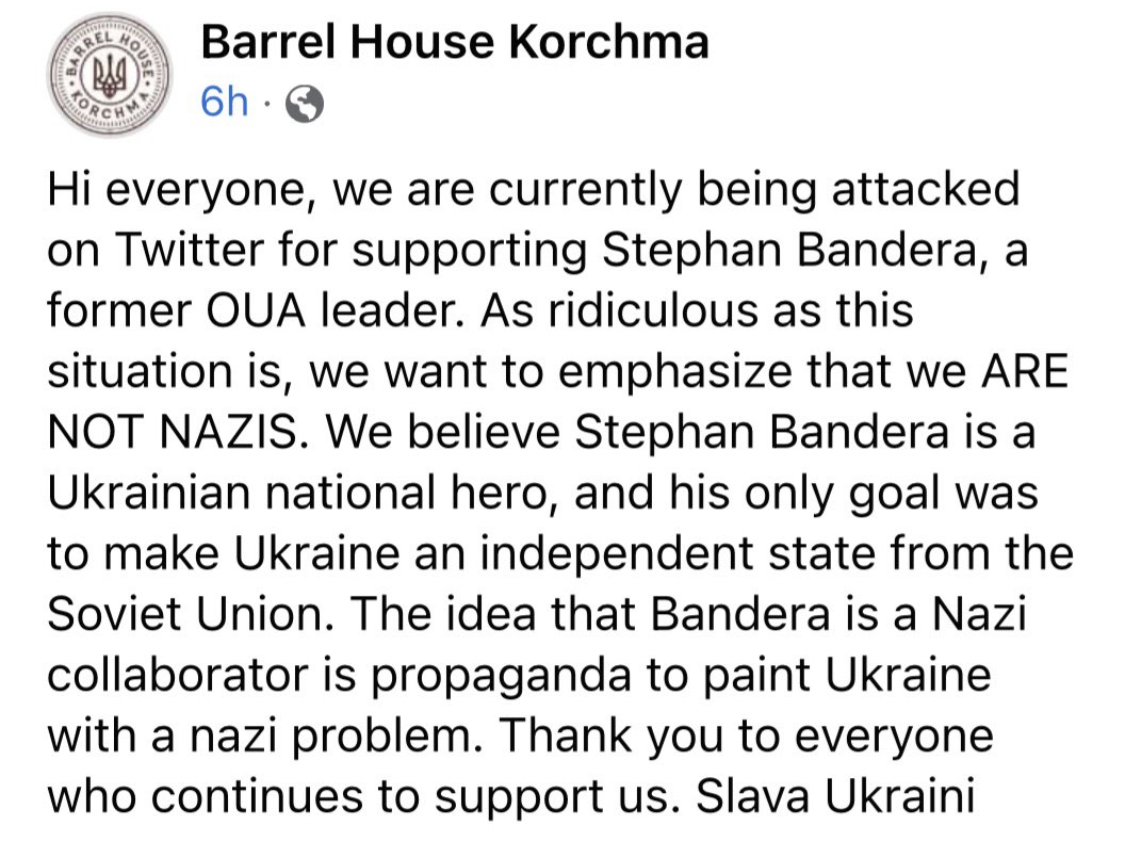The restaurant’s Facebook response:

They also have a gift shop where you can buy the Nazi flag and one with Bandera’s face on it!
So many NAFO fucks are flossing the replies, plus Ukraine flags in general.
The restaurant’s Facebook response:

They also have a gift shop where you can buy the Nazi flag and one with Bandera’s face on it!
So many NAFO fucks are flossing the replies, plus Ukraine flags in general.
Quoting Grzegorz Rossoliński-Liebe’s Stepan Bandera: The Life and Afterlife of a Ukrainian Nationalist, pages 171–2:
Some of the replies were trying to say Bandera wasn’t a Nazi because he was arrested by the Nazis…
That’s not good enough. The reason that the German Reich temporarily arrested him had nothing to do with his antisemitic fascism (pg. 248):
Furthermore (pg. 286):